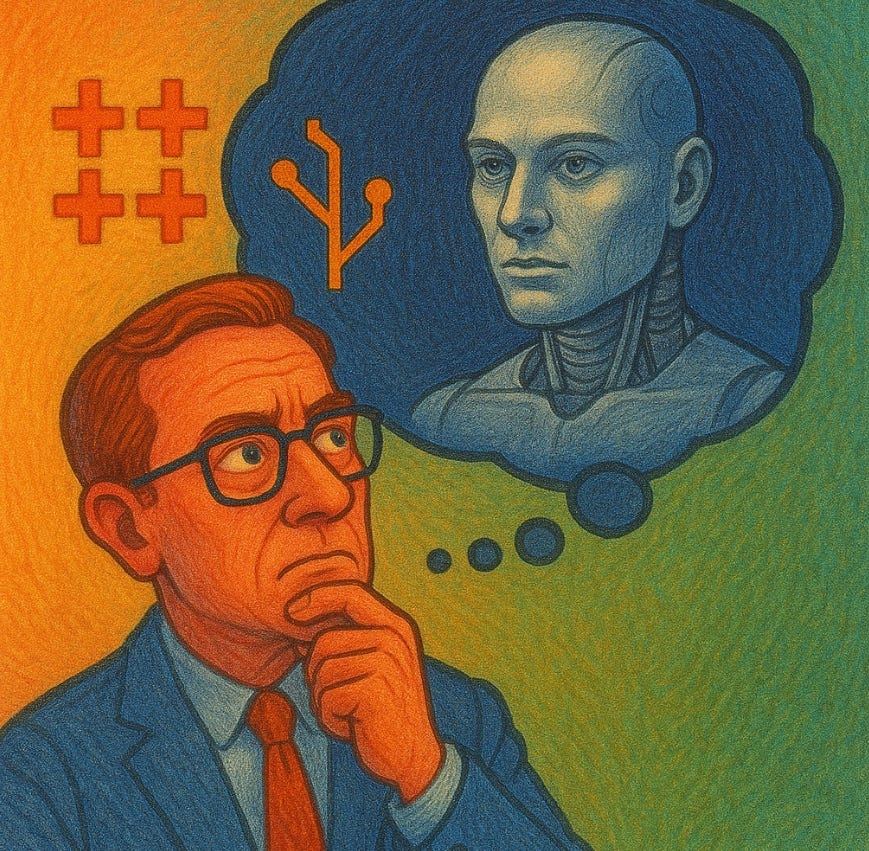What I Trust More Than AI Predictions
Four principles that compound no matter how the world changes
This time we’re not talking about scraping workflows or new automation tricks.
Nobody knows what the world will look like in five or ten years. AI is rewriting industries. Jobs are shifting. Predictions are mostly noise. Every week someone declares one profession dead, another about to explode, or that everything will soon be unrecognizable.
I don’t know those answers. What I do know is that some principles don’t change. They worked before AI, they work now, and they will keep working no matter how the world reshapes itself.
Here are four of them in my opinion.
1. Movement Compounds
In business and in life, moving matters more than thinking and preparing. Doing actual work always gives better insights than endless planning. Procrastination looks safe, but it kills momentum.
Testing a new tool for twenty minutes a week compounds into tangible knowledge. Even if you do not become an expert, you stay in the game, you get familiar, and you build a base others don’t. Waiting for the “perfect time” keeps you out.
Running small experiments with data, even if the setup is rough, teaches you more than a hundred articles about how to do it “the right way.”
Training fifteen minutes at home once a week will still build muscle over time. Meanwhile, people who spent five years planning to go to the gym are still in the same place. The same logic applies to learning a language. One word a week means hundreds in a few years. Zero means zero, no matter how good your intentions.
Movement compounds. Hesitation compounds too.
2. Breadth and Depth Both Matter
Nobody can predict which jobs will survive after AI matures. What is clear is that routine work is being replaced step by step, and mediocrity will not survive.
To stay relevant, you need depth — a skill you can deliver with authority today. You also need breadth — the ability to see problems from multiple angles and connect fields others keep separate.
Depth is knowing your craft inside out. Breadth is being able to talk across disciplines, understand their logic, and apply that knowledge in new ways.
Examples:
A marketer who not only writes campaigns but understands analytics, can scrape and collect competitor data, and knows how to work with it.
An engineer who also studies design and user behavior, so the product is not only functional but actually gets used.
A lawyer who understands software workflows and can automate contract checks.
An entrepreneur who doesn’t just use automation to save time but uses it to discover hidden insights and act before competitors notice.
Expertise is not memorizing a single method. It’s seeing the same problem from different directions. Machines will always beat you at repetition. They will not beat you at connecting signals across fields.
Depth makes you useful. Breadth makes you adaptable. The combination is rare.
3. Choose Things You Can Grow Old With
Simple, repeatable tasks will not be safe. AI will automate them sooner or later. Data entry. Reporting. Scheduling. Customer support. Even basic coding and design are moving in that direction.
If your work depends only on tasks that can be automated, the clock is ticking. The timer may be slow, but it is running.
Instead, focus on areas where time works in your favor:
Strategy.
Judgment.
Decision-making.
Relationships.
Pattern recognition across markets.
These are skills where every extra year adds compound value. When you choose to invest in them, age becomes an asset.
If you choose the wrong path, you may hit a ceiling early. If you choose the right one, every year adds an edge that machines and trends cannot erase.
4. Build a Framework to Learn What You Don’t Know You Don’t Know
The biggest risks are not the things you know you don’t know. Those are manageable. You can search, study, outsource, or hire. The real danger is blind spots — the things you don’t even realize exist until they surprise you.
Social networks make this worse. They’re built to keep you inside your bubble. Algorithms show you more of what you already believe, the same stories, the same opinions, the same signals. You rarely see something that challenges your perspective.
To fight this, you need deliberate habits that surface blind spots early:
Pull data from places you don’t normally look.
Talk to people outside your industry, not only your peers.
Ask questions you’ve never asked before.
Track signals that don’t add up, even if they seem irrelevant.
Run small experiments just to see what happens.
With the right framework, you stop depending on predictions and start creating your own insight.
AI will reshape industries. Entire categories of jobs will disappear. New ones will appear. But these principles hold steady:
Keep moving. Do not stand still.
Build breadth and depth. Mediocrity will not survive.
Choose work where time makes you better, not worse.
Develop a framework to uncover blind spots.
The future is unpredictable. If you focus here, you won’t be waiting for clarity. You will already be moving, learning, and building strength with data to back you up.
In my personal newsletter, I am going to write more about things I just discovered that I didn’t even know existed, and how those discoveries change the way I look at business and work. You can also check my last article here:



